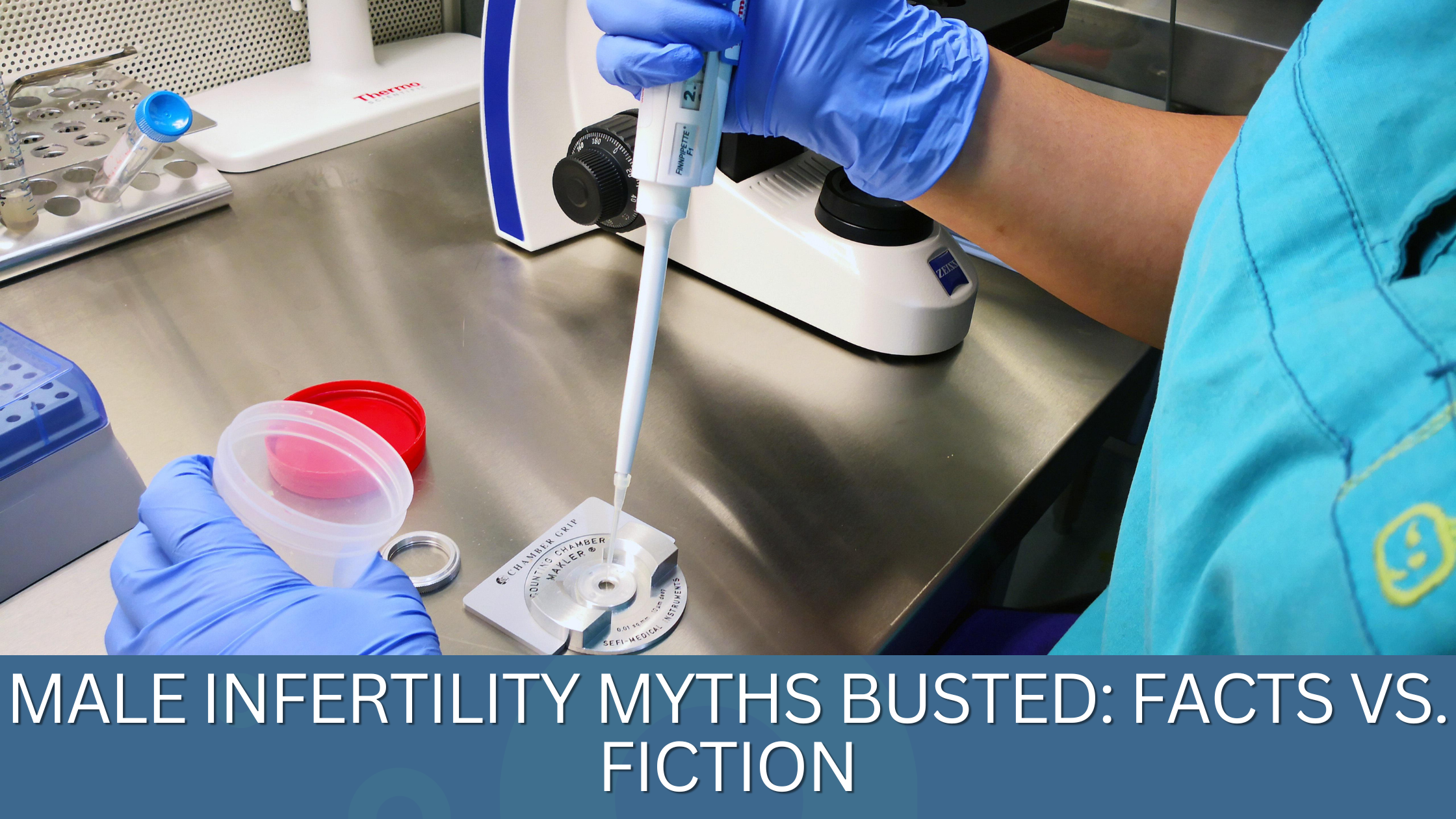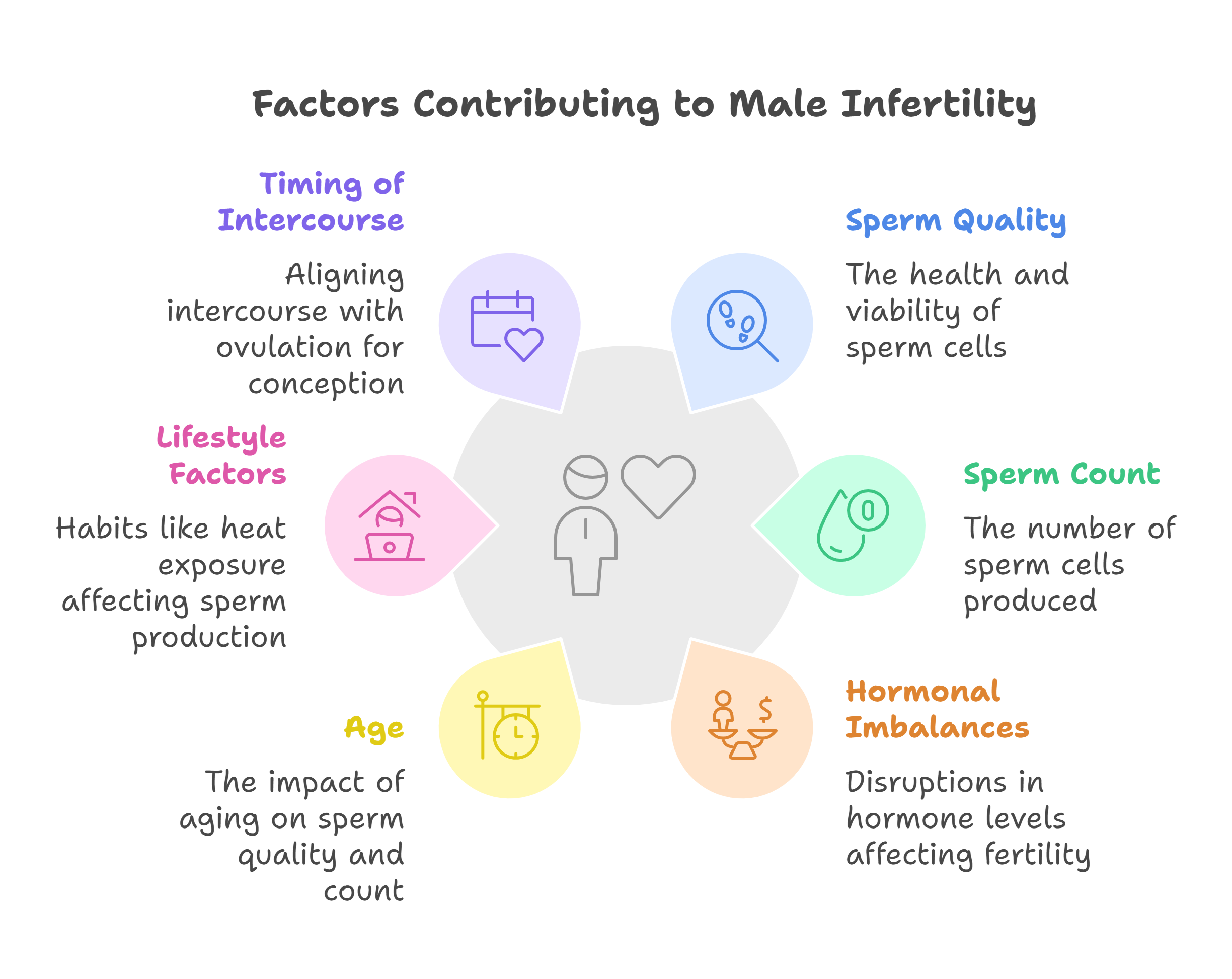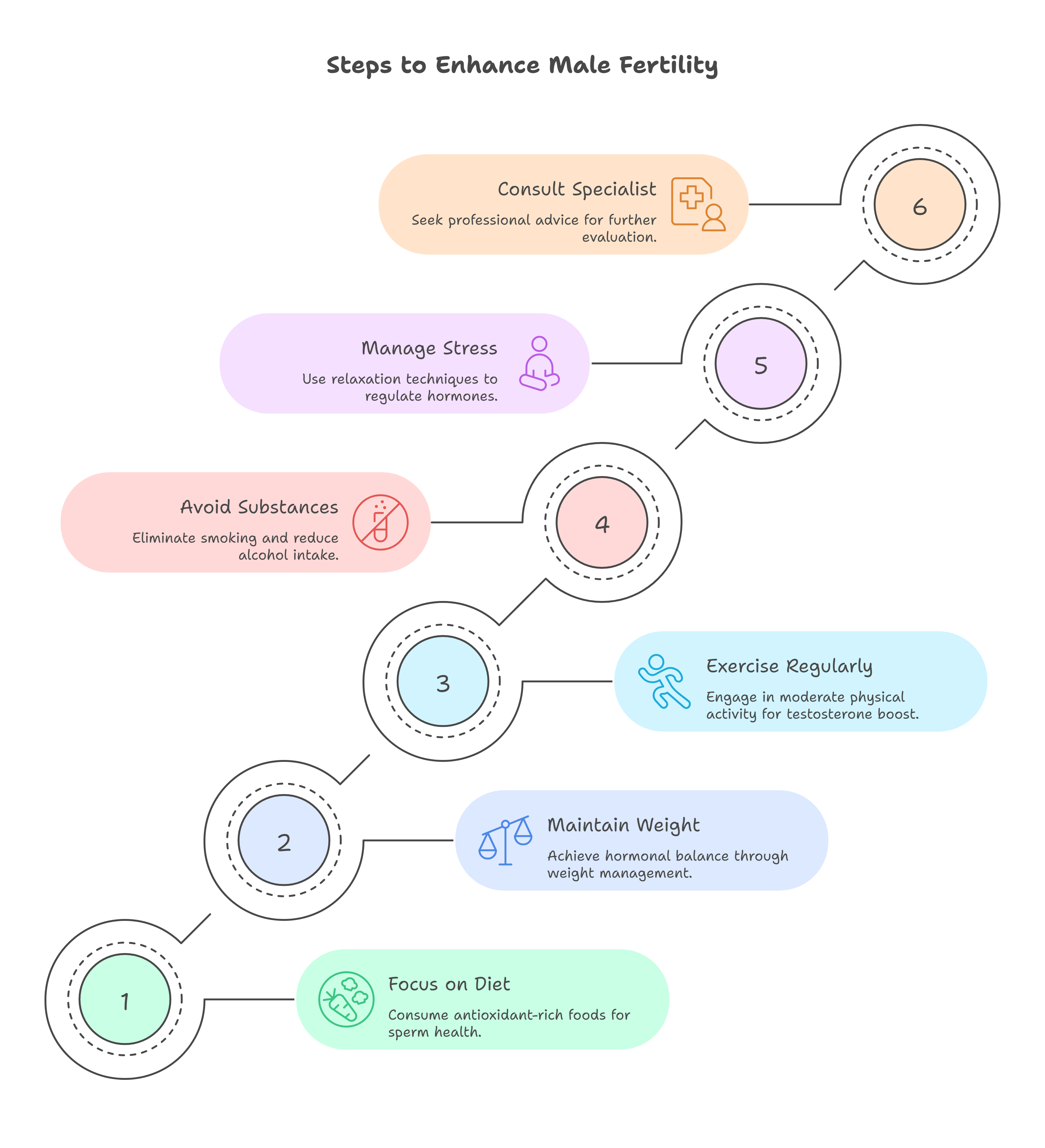
Many times, when couples have a problem conceiving, people think that something must be wrong with the woman, but men also play an equal role in conception challenges. In fact, in 50% of the infertility cases, it is the male factor that is the primary or contributing cause of infertility.
Accepting this fact is the first step towards finding a solution and improving your chances of becoming a parent. When males understand the facts around male infertility, they can improve their health, enhance sperm quality, and increase their odds of starting a family. Let us debunk some common myths around male infertility and talk about real factors.
Debunking Common Male Infertility Myths
Myth 1: Infertility Is Always a Woman’s Problem
Fact: This is one of the most common myths that people have heard. Even when the woman is completely healthy, conditions such as low sperm count, poor motility, or hormonal imbalances make conception difficult.
Myth 2: Age Doesn’t Impact Male Fertility
Fact: Like women experience fertility problems as they age, so do men. Men do produce sperm throughout their lives, but after reaching 40, the sperm quality and count can decline. Due to this, not only does it take longer to get pregnant, but it also increases the risk of genetic issues.
Myth 3: Sexual Performance Equals Fertility
Fact: Fertility and sexual performance are not the same. Fertility depends on the quality and quantity of your sperm. You can have a perfectly normal sex life and still be infertile due to issues like low sperm count, poor motility, or abnormal sperm shape.
Myth 4: Tight Underwear Causes Male Infertility
Fact: Tight underwear alone does not cause male infertility. However, excessive heat around the scrotum can lower sperm production. The activities that can increase scrotal temperature include frequent use of saunas, hot tubs, or keeping a laptop on your lap for long periods..
Myth 5: More Sex Guarantees Conception
Fact: if you are trying to get pregnant, then timing is more important than frequency. Having intercourse during a woman’s ovulation window maximizes the chances of conception.
Myth 6: Male Infertility Is Always Permanent
Fact: You need not lose hope, many causes of male infertility can be treated. Lifestyle changes, medications, or medical procedures can address issues related to male infertility.
Real Factors Affecting Male Fertility

There are several factors that can impact male fertility. These range from medical conditions to lifestyle choices. Understanding these can help you control them and improve the chances of conception. Some of the common factors are:
Medical and Genetic Causes
Varicoceles, which are enlarged veins in the scrotum, impact sperm production. Apart from this, other issues like hormonal imbalances, infections, or genetic conditions can also affect fertility.
Lifestyle and Environmental Factors
Your lifestyle choices can have a major impact on fertility. If you smoke cigarettes or e-cigarettes, drink heavily, or indulge in recreational drugs, you can end up harming sperm quality. Also, your physical health plays a role, if you are obese and have a poor diet, then it can lower testosterone and reduce sperm health.
Stress
If you are suffering from chronic and unmanaged stress, it disrupts hormone levels and affects sperm production.
Practical Steps to Boost Male Fertility

By adopting lifestyle changes and taking the help of some medical interventions, there can be a significant improvement in male fertility. Here are some practical steps that you can follow:
Step 1: Focus on Diet and Nutrition
Not only women but men also need to focus on their diet and nutrition. Eat foods packed with antioxidants, zinc, and omega-3 fatty acids. These nutrients are essential for healthy sperm production. You can get these in colorful fruits, vegetables, nuts, fish, and whole grains.
Step 2: Maintain a Healthy Weight
Being obese not only impacts other functions of your body, but it also results in reduced testosterone and poor semen quality. When you lose weight, it balances hormone levels and improves sperm quality.
Step 3: Exercise Regularly
Doing moderate exercise such as brisk walking and strength training can boost testosterone and enhances semen quality. Avoid over-exercising as extreme workouts can have the opposite effect.
Step 4: Avoid Harmful Substances
The best thing you can do to improve fertility is to stop smoking and reduce your alcohol intake. Also, totally avoid recreational drugs as they can impact sperm health.
Step 5: Manage Stress Effectively
Managing stress will not only bring peace of mind but also help regulate hormone production. You can use exercise, meditation, yoga, deep breathing, or therapy to manage stress.
Step 6: Consult a Fertility Specialist
Even after following the above steps, if conception does not happen, then you should consult a fertility specialist. A specialist can perform a semen analysis and a full health evaluation to understand any underlying causes and discuss the best treatment options for your specific situation. Treatments may include medication, lifestyle recommendations, surgery, or advanced reproductive techniques like IVF or ICSI.
Male infertility is more common than you think, and in many cases, it is treatable. By debunking myths and understanding the facts, you can take proactive steps to improve your fertility.
Ready to take the next step? At London IVF, our expert team specializes in diagnosing and treating male infertility. From semen analysis to personalized treatment plans, we are here to help. Book a consultation at any of our centres in Visakhapatnam, Kakinada, Rajahmundry, Vizianagaram, or Tuni.



